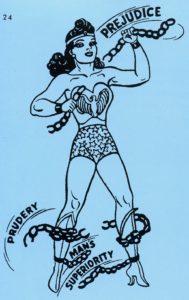
When I think of race relative to the United States, I think of White/Black binary constructs and umbrella terms like “Latino/as” which ignore certain members of our society. White/Black binary constructs and umbrella terms, unfortunately, ignore the fact people come from different racial/ethnic groups in the U.S. One in particular is Blaxicans, who often have to choose whether they are Black or Mexican when filling out the dreadful forms that collect demographic information. In the “Being Blaxicans in L.A.” clip we see the problems that persist from the “either or” dichotomy. The “either your this or that” dichotomy forces people to deny aspects of their identity. However, in the clip, we see how Walter Thompson-Hernández, has overcome the White/Black binary, embracing the fact that he is both Black and Mexican. He challenges binary constructs and embraces all aspects of his identity. He is not Black or Mexican; he is both Black and Mexican-a Blaxican. In doing so, he creates an Instagram page, a space, where people of color who are mixed share their powerful stories about identity in America and what that looks like for people of color who do not fit the White/Black binary. Similar to Thompson-Hernandez, and all the other people of color in the articles discussing identity in America, my daughter struggled with being a mixed child. Because she carries more of the biological features of a Black person, her identity has been ascribed to her. She is automatically marked as being “Black.” She has remarked on several occasions that people just assume that she is “Black.” Or, she gets the dreadful question of “What are you mixed with?” My daughter is Black and Mexican, who, similar to Thompson-Hernandez, is being raised in a single parent Chicano/a household. Similar to Thompson-Hernandez, my daughter does not deny her Black roots. She is proud to be a “Blaxican.” As a parent who is conscious of these binary constructs and how they have oppressed certain people’s identities in America, I make sure that she embraces all aspects of her identity when it comes to race, even gender and class.
My question would be: How do you identify and why? Do you embrace all aspects of your identity? If not, Why?





